The Fight in West Virginia
-by L. H. Marcy
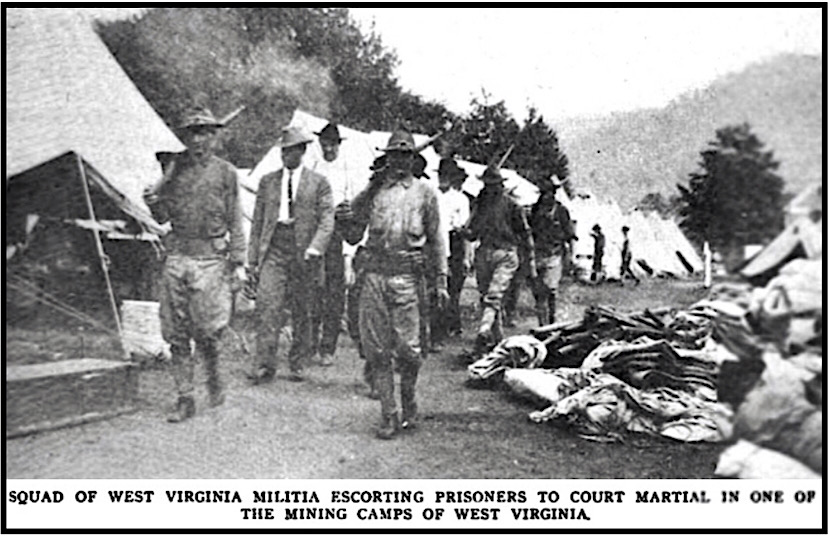
The Fight in the Mountains
Two months ago it looked as though the West Virginia miners would win their long fight against the operators. As cold weather came on and troops and police drove the families of the miners off company property, they were not permitted to stop on public land. So the miners secured tents and took their families and few belongings up into the mountains.
And all through the cold of winter, they have gathered together to talk unionism and Socialism and to weld the group into a band that would hold out until the strike was won.
The company-employed trouble-makers have been always on the ground looking for an opening to start something. Children have been kidnapped; women have been assaulted. Men have been deliberately picked off and shot by brutes hiding in ambush.
There occurred many clashes between “guards” and strikers. It seems to be the business of the “guards” to kill a few miners now and then to stir the others into violence.
The miners who have withdrawn from the property district of the mine owners, who have taken refuge for their families in the mountains ARE NOT TO BE ALLOWED ANY PEACE.
Sheriff Hill of Kanawha County, with a posse of twenty-five deputies was unable to enter the strikers’ camp. The miners declared he was going too far to try to take armed men into their peaceful camps after the mine owners’ thugs had virtually driven them into the mountains by actual murder. All approach to the miners’ camps were carefully guarded by strikers who occupied commanding positions on the mountain sides.
The mine owners were at their wits end. The United Mine Workers promised the strikers aid. The strikers swore they would GAIN something or stay out forever.
Then came His Honor, Governor Glascock, the colleague of Theodore Roosevelt, the vaunted PROGRESSIVE-the “friend of the workingman.” Five companies of militia were ordered to the scene and a sixth company called from Mucklow. Martial Law will probably be declared again.
Put this where you will never forget it. This Progressive Governor has shown himself more surely the servant of the mine owners than any old time politician could possibly have done. He has sent troops into the mountains who will SEARCH OUT and shoot innocent women and children and miners who have been persecuted in their retreat.
Telephone and telegraph wires have been cut. More troops are on their way to the mountains. February 11, at the first encounter, the long range rifles of the militia killed thirteen miners and wounded fifteen more. The capitalist papers report that “three mine guards were also killed.”
If there has ever been any doubt in your mind before, this strike ought to be an eye-opener, as to the functions of capitalist governors and the militia.
The CHIEF FUNCTION OF THE ARMY IS TO BREAK STRIKES. Gov. Glasscock seems to feel it his chief duty to serve the mine owners in their efforts to crush the mine WORKERS. This was the consistent attitude of the First Progressive Leader in all troubles between capitalists and laborers.
Report comes in that several hundred miners, employed in a union mine near the Kanawha District, have armed themselves and started for Paint Creek, declaring they will avenge the death of their comrades who were shot by paid thugs, hiding in ambush.
The United Mine Workers have promised a $200,000 monthly benefit assessment for the striking miners.
The strikers have learned to fight, in and for, One Big Union. They are learning, in this strike, that they must put their own men in office to USE THE TROOPS IN THEIR BEHALF NEXT TIME.
[Emphasis added. Photograph added from ISR of November 1912]
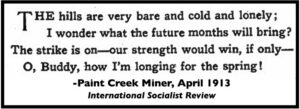 —————
—————
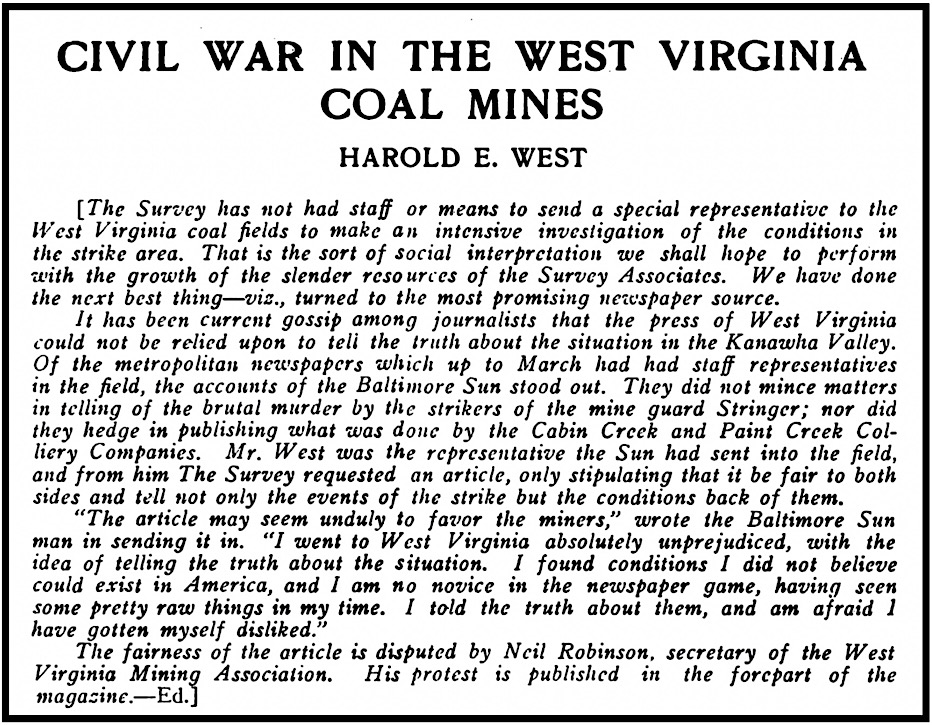
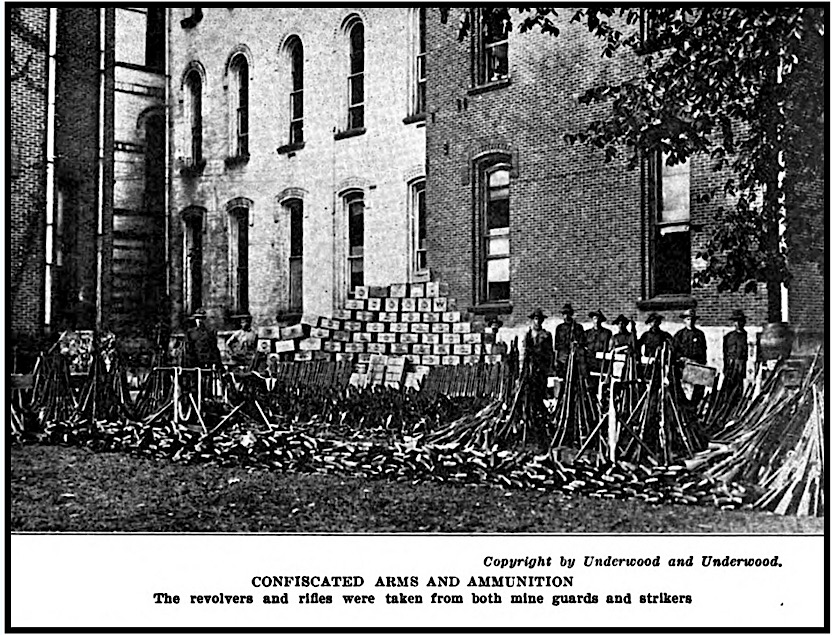
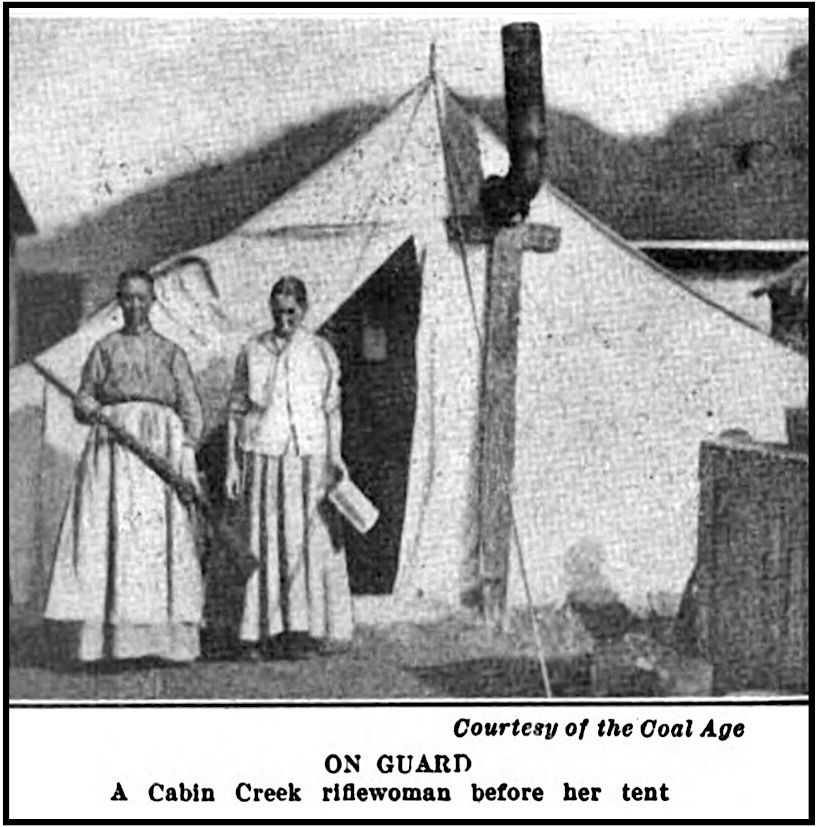
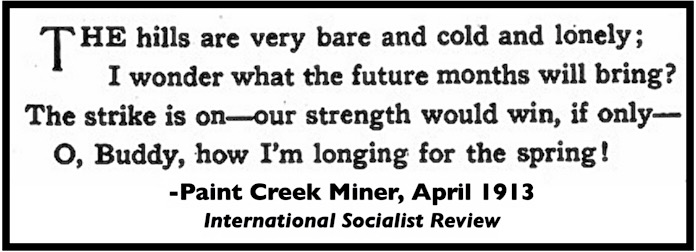 —————
—————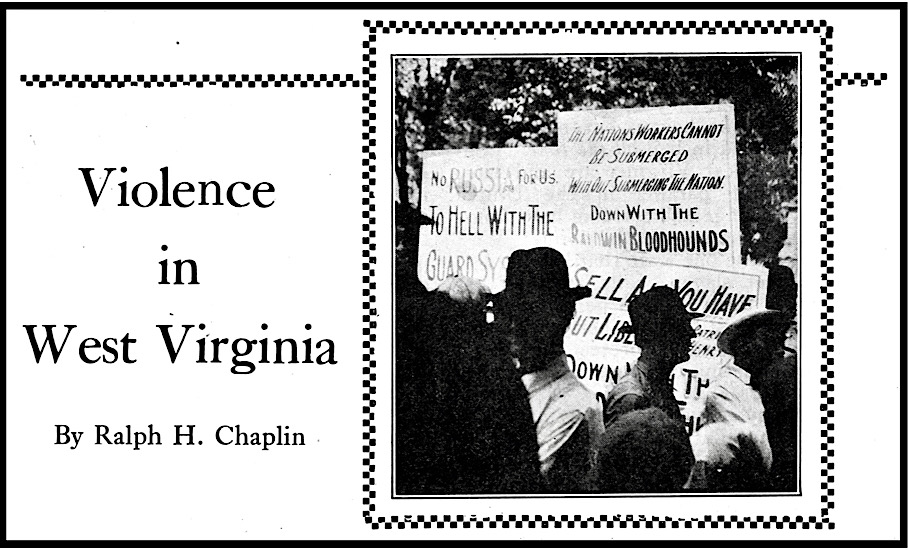
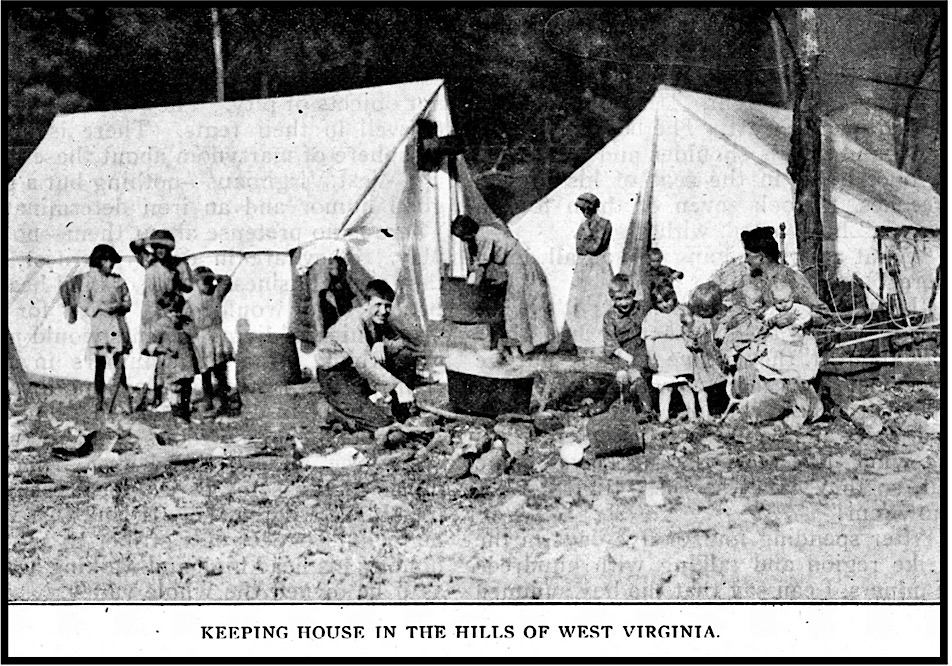
 —————
—————